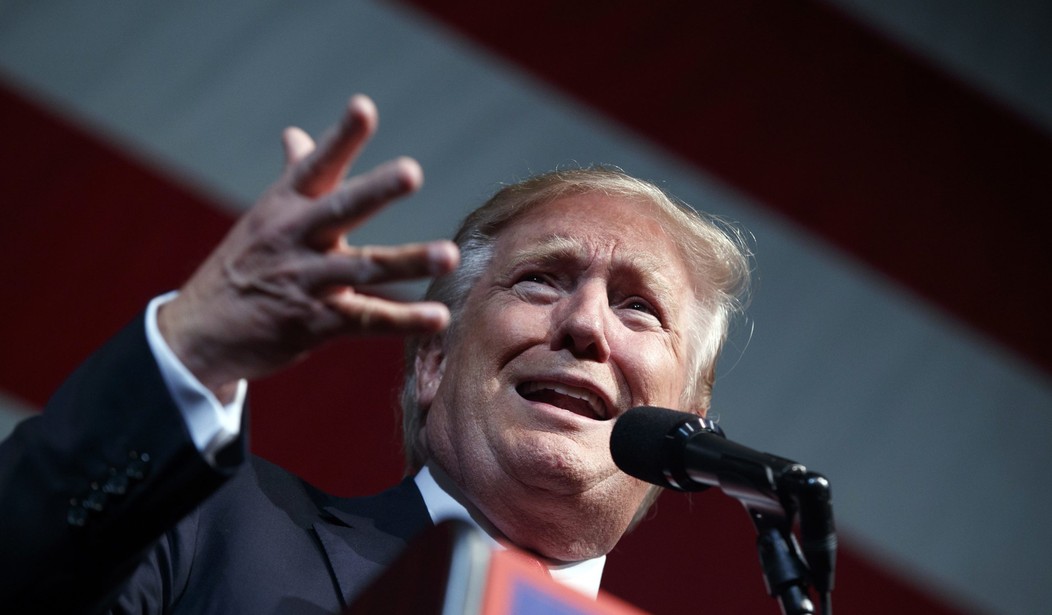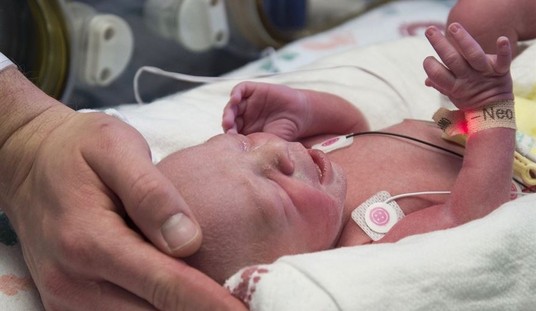In an article in the Weekly Standard titled “Self Made Man,” Andrew Ferguson reviews two new books on the 44th president, Edward Klein’s The Amateur, and Barack Obama: The Story, by David Maraniss of the Washington Post. Ferguson isn’t much impressed with the fresh tasty raw red meat of Klein’s book (I certainly enjoyed it for what it’s worth; enormous swatches of the book can be found online in the articles that highlighted its release, if you want to get a sense of its tone). But as Ferguson writes, while Klein deliberately set out to write a hit job, Maraniss, an Obama groupie of the first order (which goes without saying about almost everyone who works for the Post, as its former ombudsperson admitted after the 2008 election was over) may end up performing an even bigger demolition:
Maraniss’s book is most interesting for the light it casts on Obama’s self-invention, which is of course the theme of Dreams from My Father: a sensitive and self-aware young man’s zig-zagging search for a personal identity in a world barely held together by fraying family ties, without a cultural inheritance, confused and tormented by the subject of race. Dreams is a cascade of epiphanies, touched off one by one in high school, at Oxy, in New York and Chicago, and, at book’s end, before his father’s grave in Africa. Years before Obama haters could inflate him into an America-destroying devil or Obama worshippers spied those rolling swells of greatness that have yet to surface, Barack Obama was carefully fashioning from his own life something grander than what was there. He was the first Obama fabulist.
Obama himself drops hints of this in Dreams. He writes in his introduction that the dialogue in the book is only an “approximation” of real conversations. Some of the characters, “for the sake of compression,” are “composites”; the names of others have been changed. All of this is offered to the reader as acceptable literary license, and it is, certainly by the standards of the early 1990s, back in the day when publishers flooded bookstores with memoirs of angst-ridden youth and there were still bookstores to flood. Yet the epiphany-per-page ratio in Obama’s memoir is very high. The book derives its power from the reader’s understanding that the events described were factual at least in the essentials. Maraniss demonstrates something else: The writer who would later use the power of his life story to become a plausible public man was making it up, to an alarming extent.
At least it should be alarming to admirers of Dreams. Early on Obama signals that his book will be more self-aware, more detached and ironical, than most youthful memoirs, especially those involving the humid subject of race. Thus we meet Ray, a classmate at Punahou School in Hawaii. Ray is black and radicalized, and given to racially charged rants about “white folks,” a term the narrator comes to despise.
“Sometimes, after one of his performances,” Obama writes, “I would question his judgment, if not his sincerity. We weren’t living in the Jim Crow South, I would remind him. We weren’t consigned to some heatless housing project in Harlem or the Bronx. We were in goddamned Hawaii.”
Still Ray’s rants continue, and Obama continues to listen. Ray complains the football coach won’t start him, despite his superior skill, because he’s black; Obama is clearly being passed up by the basketball coach on account of his race, too. The white girls refuse to go out with them—for the same reason.
“Tell me we wouldn’t be treated different if we was white. Or Japanese.”
Racial resentment is the key to Ray. In Maraniss’s words, he’s “a symbol of young blackness, a mix of hot anger and cool detachment,” racially authentic in a way none of Obama’s other friends were. He provides a crucial example of the resentment that Obama is tempted by but at last outgrows.
But Ray wasn’t really there—didn’t exist, in fact. Ray is a “reinvention” of one of Obama’s friends, Maraniss tells us. His mother was half-black and half-American Indian; his father was . . . Japanese. His name was Keith Kakugawa, and he had no trouble dating white girls; his girlfriend at the time was the base admiral’s daughter. Maraniss discovered that Obama’s luck with girls, whatever their melanin count, was just as robust as Keith’s. With a Japanese name, Kakugawa would have trouble—more trouble than half-black Barry Obama—identifying himself as an African American and speaking as one. If Kakugawa was Ray, then the rants and the attitudes they represent are in this instance made up, and the story line of Dreams—the story of Obama’s life as we have learned it—loses an essential foil.
“Somewhere between pseudonymous and fictitious,” Maraniss writes, gently as always, “Ray was the first of several distorted or composite characters employed in Dreams for similar purposes.” But it’s the purposes themselves that are worrisome. Maraniss cuts Obama much more slack than he would, say, if he were an editor at the Washington Post magazine fact-checking a memoir he hoped to publish. He’s right to accept some invention from a memoirist who insists on telling his story through precise rendering of scenes and dialogue. But a memoir is just realist fiction unless the “composite” says and does things that were done and said by someone. In Dreams many of the crucial epiphanies, the moments that advance the narrator’s life and understanding to its closing semi-resolution, didn’t happen.
Whether or not he actually wrote Dreams, or simply signed off on text written by a ghostwriter, more or less concurrent with the book’s release, Obama was still sifting through the details of his life; born in Kenya this week, born in Hawaii the next, depending upon which room he needed to work. When the Breitbart crew broke the story that Obama had “Born in Kenya” on his ’90s-era PR copy, Roger L. Simon asked the same question that Ferguson is asking, which Maraniss — very likely, much to his chagrin — is also tacitly wondering: “Is Obama a Pathological Liar?”
We have always branded Bill Clinton a liar, at least about sex, and probably other things. But the amazing scoop by Breitbart.com today makes Obama one up on Bill. In all likelihood, the president will say that he never saw the information from his literary agents claiming he was born in Kenya. But as the author of 11 books, I can say that in EVERY instance that I have been published, I have seen such material in advance. It could be that Obama is the exception, but that is highly unlikely.
In other words, we have in the White House a man willing to bend his national identity for profit. Pretty cool! (He’s supposed to be cool, isn’t he? Well that’s as cool as it gets.)
These issues also help to explain what drives the Birthers of both parties, something that Mark Steyn discussed last year in his book After America:
With hindsight, this is what drove both the birthers and the countering cries of racism. Detractors and supporters alike were trying to explain something that was at first vaguely palpable and then became embarrassingly obvious: it’s not so much that he’s foreign to America, but that America is foreign to him. Outside the cloisters of Hyde Park and a few other enclaves, he doesn’t seem to get America. Not because he was born in Kenya or wherever, but because he’s the first president to be marinated his entire life in a post-modern, post-American cultural relativism. What’s worrying about Obama is not that he’s weird but that he’s so typical of much of the Eloi [Steyn’s recurring H.G. Wells-inspired leitmotif in After America for the pampered elite — Ed]; in that sense, his post-Americanness is all too American.
In both Chicago’s Ward Four, where the Obamas lived, and Ward Five, where they worked, 95 percent of electors voted Democrat in 2004. You would be hard put to find another constituency so committed to celebrating lack of diversity. Like most professional multiculturalists, Obama has passed his entire adulthood in a very narrow unicultural environment where your ideological worldview doesn’t depend on anything so tedious as actually viewing the world. The aforementioned Michael Ignatieff, who actually has viewed the world, gets close to the psychology in his response to criticisms of him for spending so much time abroad. Deploring such “provincialism,” he replied: “They say it makes me less of a Canadian. It makes me more of a Canadian.”
As the joke about Obama that’s been circulating since 2008 goes, the clothes have no emperor. And Ferguson writes that inadvertently, that’s what Maraniss reveals:
What’s dispiriting is that throughout Dreams, the moments that Obama has invented are precisely the occasions of his epiphanies—precisely those periodic aha! moments that carry the book and bring its author closer to self-discovery. Without them not much is left: a lot of lovely writing, some unoriginal social observations, a handful of precocious literary turns. Obama wasn’t just inventing himself; he was inventing himself inventing himself. It made for a story, anyway.
We can see the dilemma he faced. Obama signed a contract to write a racial memoir. They were all the rage in those days, but in fact their moment had passed. Even with the distant father and absent mother, the schooling in Indonesia and the remote stepfather, Obama lived a life of relative ease. He moved, however uncomfortably, into one elite institution after another, protected by civil rights laws, surrounded by a popular culture in which the African-American experience has embedded itself ineradicably. As Obama’s best biographer, David Remnick, observed, this wasn’t the stuff of Manchild in the Promised Land; you couldn’t use it to make the Narrative of the Life of Frederick Douglass or the Auto-biography of Malcolm X. So Obama moved the drama inside himself, and said he’d found there an experience both singular and universal, and he brought nonexistent friends like Regina and Ray to goose the story along.
He did in effect what so many of us have done with him. He created a fable about an Obama far bigger and more consequential than the unremarkable man at its center.
If Americans can’t believe the autobiographical details about their president (not to mention the media that ignored all of his contradictions on the way to his coronation), why should they believe what he says today?










Join the conversation as a VIP Member